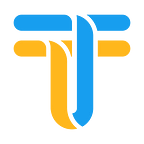Utilizing Blockchain for Businesses
Blockchain, known as the backbone technology of Bitcoin, has now been utilised to support businesses in terms of data distribution. For Bitcoin, blockchain works as a distributed ledger in which all transaction data are validated by miners with the currency as the rewards. However, in its nature, blockchain is an ever-growing set of data blocks. Each block records a set of transaction data which are distributed across a group of computers called nodes. Each node has its own copy of the transaction data set, and every change made can be traced and recorded simultaneously. This is the decentralized character of the blockchain as there is no central point of authority that records the data and makes it impossible to hack because in order to hack one set of data, hackers need to attack every node connected in the network.
The data distribution that happens in the blockchain does not rely on a central authority by a financial or governmental institution. The benefit of having no central authority is that transaction data are done in the network. According to Vitalik Buterin, the creator of Ethereum:
“Blockchains are politically decentralized (no one controls them) and architecturally decentralized (no infrastructural central point of failure) but they are logically centralized (there is one commonly agreed state and the system behave like a single computer).”
The decentralized system politically means that we do not need to trust any central authority to regulate agreements for our transactions. A central authority can become a core of weakness if all data are owned by a single point and the spreading of data is unknown. Trust issues then come into play. The owner will have the power to control, while data providers will be unable to control the mobilization of their data. Any kind of information can be monetized. Differently, the blockchain system ensures that the data are stored with encryptions to convert the information into codes. This provides security as any unauthorised party will not be able to read the data.
In a traditional database, one central host is consistently residing the data. Whenever the central system is bummed out, all the data are in trouble. In contrast, in the blockchain ecosystem, there is shared ownership in which the participants of the ecosystem validate the activities. All nodes receive transaction data and verify that the data are valid. Architecturally, the blockchain database does not exist in a single location, and the data records are kept with public keys, known as algorithms, so they cannot be controlled by any single entity and have no single point of failure.
Blockchain works logically using a consensus mechanism. In order to make decisions and agreements, the consensus assures that all participants in the network are able to gain benefits. The consensus is made to give rewards to the validators and to make the network safe from fake transactions and false information. The logic of consensus is agreed by the whole network and applied as a rule in the blockchain system.
Applying the blockchain technology to business processes, Tokoin aims to create a healthy ecosystem powered by the participants and concurrently benefitting the participants. In business cases, Tokoin’s participants are ensured with a data distribution system that is safe, trustworthy, and decentralized.
For further information, do not hesitate to contact us on:
